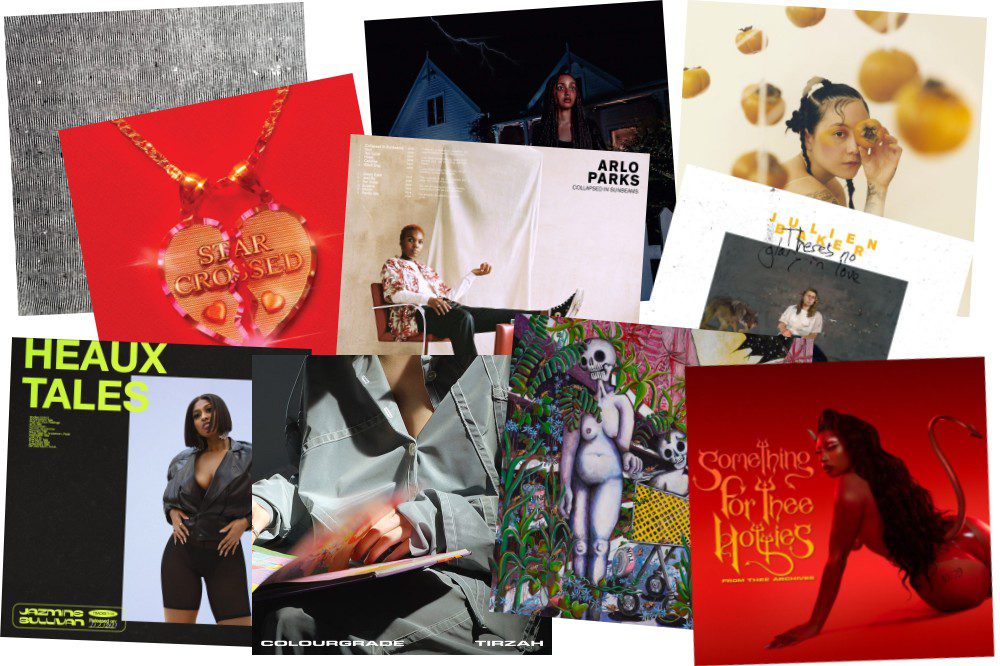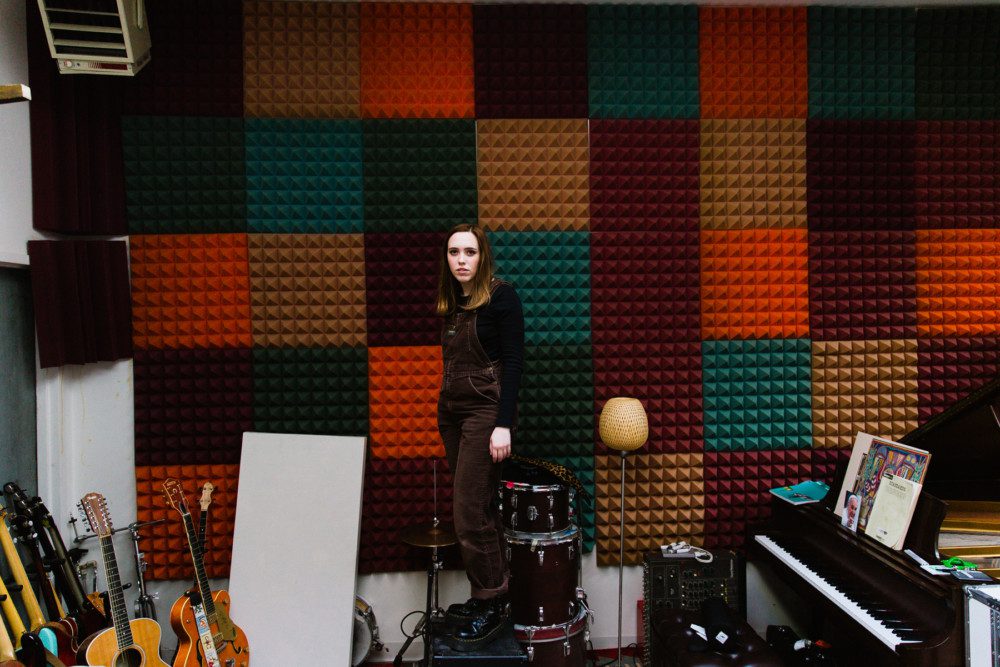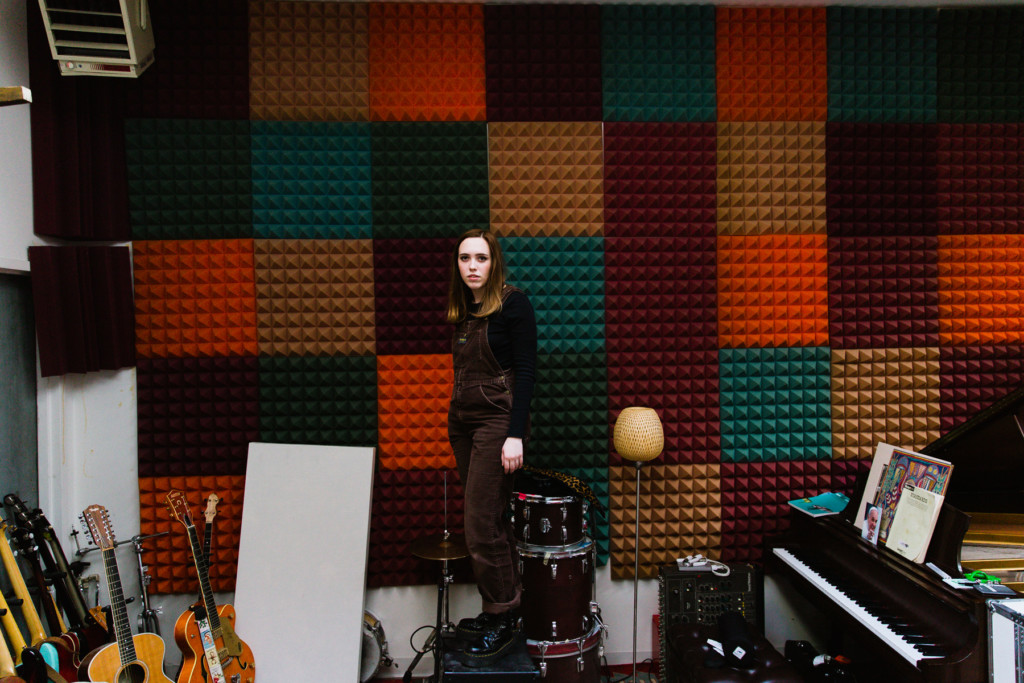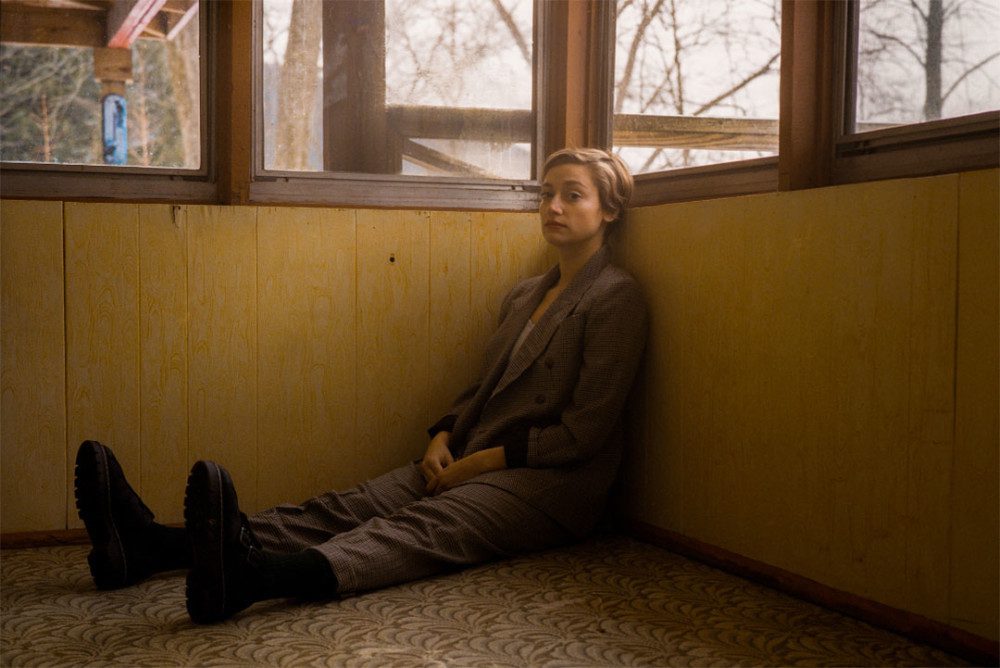

If you went into 2021 with high expectations, you weren’t alone. Even if it was hard to feel optimistic this time last year, it certainly seemed as if things could get no worse. Live music did return, after all – though with the appearance of Delta, and now Omicron, the joyful noise comes with a caveat. After sixteen months of having to livestream shows (fun, but not the same) little could stop me from attending shows in person; wearing a mask as an extra precaution felt like no big deal, even if no one else was doing it. But luck (and vaccines) feel like the real reason I emerged unscathed from dozens of risky experiences, and with performances on the horizon canceled once again, maybe it’s wise to enter 2022 with slightly lower expectations.
There’s always recorded music, anyhow. Maybe the tumult of the year just has me personally feeling a bit unfocused, but it seems as though I barely scaled the mountain of this year’s musical offerings without getting a bit buried in the avalanche of releases – ones that had been pushed back, ones that were created in lockdown. I’ll be playing catch up well into the new year, but that doesn’t mean there weren’t gems I connected with almost immediately, and very deeply. And that’s what I’ve heard across the board, from those in the industry as well as casual music fans – is that our favorites this year stayed on heavy rotation, as we latched onto music that accurately reflected our moods, which evolved moment to moment and of course happened to be different for all of us at any given time. What does that mean for year-end lists? Audiofemme has always compiled an eclectic list, including favorites from each of our contributors without overall rank – consider any repeats to be the best of the best. But this year, the list seems even more diverse, meaning there’s a wealth of weird and wonderful music below to discover, dear reader. Thanks for sticking with us through another wild year.
EDITOR LISTS
- Marianne White (Executive Director)
- Top 10 Albums:
1) PinkPantheress – to hell with it
2) Mdou Moctar – Afrique Victime
3) Low – Hey What
4) Jazmine Sullivan – Heaux Tales
5) Julien Baker – Little Oblivions
6) Dawn Richard – Second Line: An Electro Revival
7) Indigo De Souza – Any Shape You Take
8) aya – im hole
9) Flock of Dimes – Head of Roses
10) Tyler, the Creator – CALL ME IF YOU GET LOST - Top 5 Singles:
1) Japanese Breakfast – “Be Sweet”
2) Loraine James (feat. Eden Samara) – “Running Like That”
3) Hand Habits – “More Than Love”
4) Sharon Van Etten & Angel Olsen – “Like I Used To”
5) Julien Baker – “Faith Healer (Half Waif Remix)”
- Top 10 Albums:
- Lindsey Rhoades (Editor-in-Chief)
- Top 10 Albums:
1) Low – Hey What
2) Tirzah – Colourgrade
3) Nana Yamato – Before Sunrise
4) Emma Ruth Rundle – Engine of Hell
5) Jane Weaver – Flock
6) Tonstartssbandht – Petunia
7) Arlo Parks – Collapsed in Sunbeams
8) Squirrel Flower – Planet (i)
9) Veik – Surrounding Structures
10) Cassandra Jenkins – An Overview on Phenomenal Nature - Top 10 Singles:
1) Sharon Van Etten & Angel Olsen – “Like I Used To”
2) Special Interest – “All Tomorrow’s Carry”
3) Squid – “G.S.K.”
4) Julien Baker – “Bloodshot”
5) Mandy, Indiana – “Bottle Episode”
6) Remember Sports – “Pinky Ring”
7) Cedric Noel – “Comuu”
8) Gustaf – “Mine”
9) June Jones – “Therapy”
10) MAN ON MAN – “Stohner”
- Top 10 Albums:
- Mandy Brownholtz (Marketing Director)
- Top 5 Albums (in no particular order):
Spellling – The Turning Wheel
King Woman – Celestial Blues
Macy Rodman – Unbelievable Animals
Marissa Nadler – The Path of the Clouds
Kinlaw – The Tipping Scale - Top 3 Singles (in no particular order):
Often – “Deep Sleep”
Mannequin Pussy – “Control”
Spice – “A Better Treatment”
- Top 5 Albums (in no particular order):
STAFF LISTS
- Alexa Peters (Playing Seattle)
- Top 10 Albums:
1) Wye Oak – Cut All The Wires: 2009-2011
2) Dori Freeman – Ten Thousand Roses
3) Isaiah Rashad – The House Is Burning
4) Fawn Wood – Kåkike
5) Carmen Q. Rothwell – Don’t Get Comfy / Nowhere
- Honorable Mention: Mike Gebhart – Co-Pilot
- Top 3 Singles:
1) Doja Cat (feat. SZA) – “Kiss Me More”
2) Mitski – “Working for the Knife”
3) DoNormaal – “Baby May”
- Top 10 Albums:
- Cat Woods (Playing Melbourne)
- Top 5 Albums:
1) Deap Vally – Marriage
2) Mod Con – Modern Condition
3) Laura Stevenson – Laura Stevenson
4) Joan As Police Woman – The Solution is Restless
5) Black Country, New Road – For the first time - Top 3 Singles:
1) Black Country, New Road – “Sunglasses”
2) Lana Del Rey – “Dealer”
3) jennylee – “Tickles”
- Top 5 Albums:
- Liz Ohanesian (Contributor)
- Top 5 Albums:
1) Hackedepicciotto — The Silver Threshold
2) Saint Etienne — I’ve Been Trying to Tell You
3) L’impératrice — Take Tsubo
4) Pearl and the Oysters— Flowerland
5) Nuovo Testamento — New Earth - Top 3 Singles:
1) Midnight Magic – “Beam Me Up”
2) Jessie Ware – “Please”
3) Gabriels – “Love and Hate in a Different Time (Kerri Chandler Remix)”
- Top 5 Albums:
- Gillian G. Gaar (Musique Boutique)
- Top 5 Albums:
1) Dolphin Midwives — Body of Water
2) Sarah McQuaid — The St. Buryan Sessions
3) Low — Hey What
4) Witch Camp — I’ve Forgotten Now Who I Used to Be
5) Full Bush — Movie Night - Top 3 Singles:
1) Maggie Herron — “Sweet Lullaby”
2) Sleater-Kinney — “High in the Grass”
3) ONETWOTHREE — “Give Paw”
- Top 5 Albums:
- Jason Scott (Contributor)
- Top 5 Albums:
1) Jetty Bones – Push Back
2) M.A.G.S. – Say Things That Matter
3) Lyndsay Ellyn – Queen of Nothing
4) Kacey Musgraves – star-crossed
5) Christian Lopez – The Other Side - Top 5 Singles:
1) Hayes Carll – “Help Me Remember”
2) Jake Wesley Rogers – “Middle of Love”
3) Adele – “To Be Loved”
4) Carly Pearce – “What He Didn’t Do”
5) Kacey Musgraves – “what doesn’t kill me”
- Top 5 Albums:
- Michelle Rose (Contributor)
- Top 5 Albums:
1) Alex Orange Drink – Everything Is Broken, Maybe That’s O.K.
2) Billie Eilish – Happier Than Ever
3) Kacey Musgraves – star-crossed
4) Magdalena Bay – Mercurial World
5) Japanese Breakfast – Jubilee - Top 3 Singles:
1) Blonder – “Ice Cream Girl”
2) Mitski – “The Only Heartbreaker”
3) Kristiane – “Better On Your Own”
- Top 5 Albums:
- Victoria Moorwood (Playing Cincy)
- Top 5 Albums:
1) Polo G – Hall of Fame
2) Benny the Butcher & Harry Fraud – The Plugs I Met 2
3) Megan Thee Stallion – Something For Thee Hotties
4) Pooh Shiesty – Shiesty Sessions
5) blackbear – misery lake - Top 3 Singles:
1) Benny the Butcher & Harry Fraud – “Thanksgiving”
2) Lil Nas X (feat. Jack Harlow) – “INDUSTRY BABY”
3) 24kGoldn (feat. Future) – “Company”
- Top 5 Albums:
- Jamila Aboushaca (Contributor)
- Top 5 Albums:
1) Kacey Musgraves – star-crossed
2) Snoh Aalegra – Temporary Highs in the Violet Skies
3) Lil Nas X – Montero
4) Darkside – Spiral
5) Blu DeTiger – How Did We Get Here EP - Top 3 Singles:
1) Kaytranada (feat. H.E.R.) – “Intimidated”
2) Kacey Musgraves – “simple times”
3) Snoh Aalegra – “In Your Eyes”
- Top 5 Albums:
- Sophia Vaccaro (Playing the Bay)
- Top 5 Albums:
1) Aly & AJ – A Touch of the Beat Gets You Up on Your Feet Gets You Out and Then Into the Sun
2) Julia Wolf – Girls in Purgatory (Full Moon Edition)
3) Megan Thee Stallion – Something For Thee Hotties
4) Lil Mariko – Lil Mariko
5) Destroy Boys – Open Mouth, Open Heart - Top 3 Singles:
1) daine – “dainecore”
2) Julia Wolf – “Villain”
3) Doja Cat – “Need To Know”
- Top 5 Albums:
- Sam Weisenthal (Contributor)
- Top 5 Albums:
1) Indigo De Souza – Any Shape You Take
2) Katy Kirby – Cool Dry Place
3) Mega Bog – Life, and Another
4) Ada Lea – one hand on the steering wheel the other sewing a garden
5) Olivia Kaplan – Tonight Turns to Nothing - Top 3 Singles:
1) Charlotte Cornfield – “Drunk For You”
2) Dora Jar – “Multiply”
3) Joe Taylor Sutkowski, Dirt Buyer – “What Luck, Goodbye”
- Top 5 Albums:
- Sara Barron (Playing Detroit)
- Top 5 Albums:
1) PinkPantheress – to hell with it
2) Summer Walker – Still Over It
3) Erika de Casier – Sensational
4) Jazmine Sullivan – Heaux Tales
5) Adele – 30 - Top 3 Singles:
1) Lana Del Rey – “Dealer”
2) Liv.e – “Bout It”
3) SZA – “I Hate U”
- Top 5 Albums:
- Eleanor Forrest (Contributor)
- Top 5 Albums:
1) Arlo Parks – Collapsed in Sunbeams
2) CL – ALPHA
3) My Life As Ali Thomas – Peppermint Town
4) Halsey – If I Can’t Have Love, I Want Power
5) Remember Sports – Like a Stone - Top 3 Singles:
1) FKA twigs (feat. Central Cee) – “Measure of a Man”
2) Sabriel – “Pulse”
3) Lexie Liu – “有吗炒面 ALGTR”
- Top 5 Albums:









